
Pentecost is a Christian holiday which takes place on the 50th day after Easter Sunday. It commemorates the descent of the Holy Spirit upon the Virgin Mary and the Apostles of Jesus Christ while they were in Jerusalem celebrating the Feast of Weeks, as described in the Acts of the Apostles.

The liturgical year, also called the church year, Christian year or kalendar, consists of the cycle of liturgical seasons in Christian churches that determines when feast days, including celebrations of saints, are to be observed, and which portions of Scripture are to be read either in an annual cycle or in a cycle of several years.

Whitsun is the name used in Britain, and other countries among Anglicans and Methodists, for the Christian holy day of Pentecost. It falls on the seventh Sunday after Easter and commemorates the descent of the Holy Spirit upon Christ's disciples. In England it took on some characteristics of Beltane, which originated from the pagan celebration of Summer's Day, the beginning of the summer half-year, in Europe. Whitsuntide, the week following Whitsunday, was one of three holiday weeks for the medieval villein; on most manors he was free from service on the lord's demesne this week, which marked a pause in the agricultural year. Whit Monday, the day after Whitsun, remained a holiday in Britain until 1971 when, with effect from 1972, the ruling Conservative Government decided to permanently replace it, following a five year trial period, with a Spring Bank Holiday on the last Monday in May. Whit had been the occasion for many varied forms of celebration, and was of significant cultural importance. It was a custom for children to receive a new set of clothes, even among the poorest families, a tradition which continued well into the 20th century.
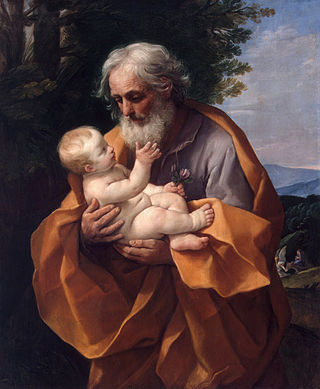
Saint Joseph's Day, also called the Feast of Saint Joseph or the Solemnity of Saint Joseph, is in Western Christianity the principal feast day of Saint Joseph, husband of the Virgin Mary and legal father of Jesus Christ, celebrated on 19 March. It has the rank of a solemnity in the Catholic Church. It is a feast or commemoration in the provinces of the Anglican Communion, and a feast or festival in the Lutheran Church. Saint Joseph's Day is the Patronal Feast day for Poland as well as for Canada, persons named Joseph, Josephine, etc., for religious institutes, schools and parishes bearing his name, and for carpenters. It is also Father's Day in some Catholic countries, mainly Spain, Portugal, and Italy. It is not a holy day of obligation for Catholics in the United States.
In the Catholic Church, holy days of obligation are days on which the faithful are expected to attend Mass, and engage in rest from work and recreation, according to the third commandment.

The Feast of Corpus Christi, also known as the Solemnity of the Most Holy Body and Blood of Christ, is a Christian liturgical solemnity celebrating the Real Presence of the Body and Blood, Soul and Divinity of Jesus in the elements of the Eucharist; it is observed by the Latin Church, in addition to certain Western Orthodox, Lutheran, and Anglican churches. Two months earlier, the institution of the Eucharist at the Last Supper is observed on Maundy Thursday in a sombre atmosphere leading to Good Friday. The liturgy on that day also commemorates Christ's washing of the disciples' feet, the institution of the priesthood, and the agony in the Garden of Gethsemane.
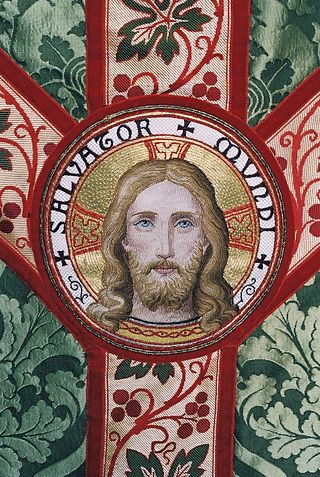
Ordinary Time is the part of the liturgical year in the liturgy of the Roman Rite, which falls outside the two great seasons of Christmastide and Eastertide, or their respective preparatory seasons of Advent and Lent. Ordinary Time thus includes the days between Christmastide and Lent, and between Eastertide and Advent. The liturgical color assigned to Ordinary Time is green. The last Sunday of Ordinary Time is the Solemnity of Christ the King.

Trinity Sunday is the first Sunday after Pentecost in the Western Christian liturgical calendar, and the Sunday of Pentecost in Eastern Christianity. Trinity Sunday celebrates the Christian doctrine of the Trinity, the three Persons of God: the Father, the Son, and the Holy Spirit.

The Feast of the Immaculate Conception celebrates the Immaculate Conception of the Blessed Virgin Mary on 8 December, nine months before the feast of the Nativity of Mary on 8 September. It is one of the most important Marian feasts in the liturgical calendar of the Roman Catholic Church.
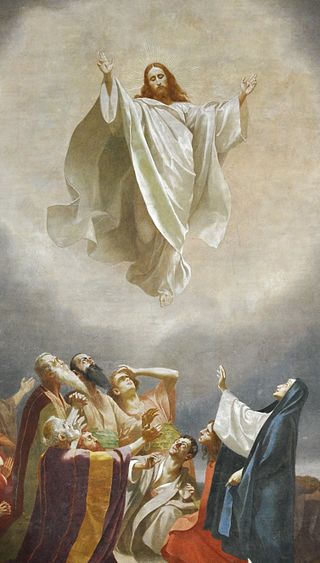
The Feast of the Ascension of Jesus Christ commemorates the Christian belief of the bodily Ascension of Jesus into Heaven. It is one of the ecumenical feasts of Christian churches, ranking with the feasts of the Passion and Pentecost. Following the account of Acts 1:3 that the risen Jesus appeared for 40 days prior to his Ascension, Ascension Day is traditionally celebrated on a Thursday, the fortieth day of Easter, although some Christian denominations have moved the observance to the following Sunday, sometimes called Ascension Sunday. The day of observance varies by ecclesiastical province in many Christian denominations, as with Methodists and Catholics, for example.
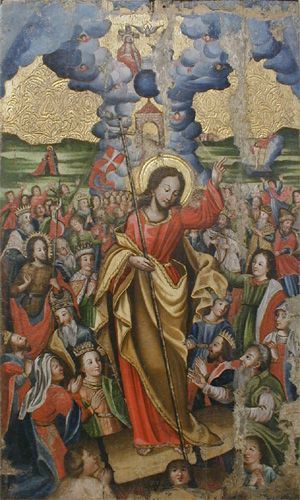
Eastertide or Paschaltide is a festal season in the liturgical year of Christianity that focuses on celebrating the Resurrection of Jesus Christ. Preceded by Lent, it begins on Easter Sunday, which initiates Easter Week in Western Christianity, and Bright Week in Eastern Christianity.
The Eastern Orthodox liturgical calendar describes and dictates the rhythm of the life of the Eastern Orthodox Church. Passages of Holy Scripture, saints and events for commemoration are associated with each date, as are many times special rules for fasting or feasting that correspond to the day of the week or time of year in relationship to the major feast days.

Whit Tuesday is the Christian holiday celebrated the day after Pentecost Monday, the third day of the week beginning on Pentecost. Pentecost is a movable feast in the Christian calendar dependent upon the date of Easter. "Whit" relates either to the white robes worn by those baptized on Pentecost, or to the French word "huit," since Pentecost is the eighth Sunday after Easter.

The Feast of Saints Peter and Paul or Solemnity of Saints Peter and Paul is a liturgical feast in honor of the martyrdom in Rome of the apostles Saint Peter and Saint Paul, which is observed on 29 June. The celebration is of ancient Christian origin, the date selected being the anniversary of either their death or the translation of their relics.

All Saints' Day, also known as All Hallows' Day, the Feast of All Saints, the Feast of All Hallows, the Solemnity of All Saints, and Hallowmas, is a Christian solemnity celebrated in honour of all the saints of the Church, whether they are known or unknown.
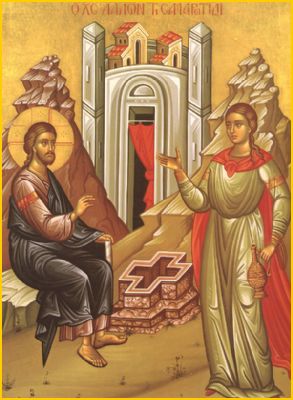
The Pentecostarion is the liturgical book used by the Eastern Orthodox and Byzantine Catholic churches during the Paschal Season which extends from Pascha (Easter) to the Sunday following All Saints Sunday.
The ranking of liturgical days in the Roman Rite is a regulation for the liturgy of the Roman Catholic church. It determines for each liturgical day which observance has priority when liturgical dates and times coincide, which texts are used for the celebration of the Holy Mass and the Liturgy of the hours and which liturgical color is assigned to the day or celebration.

Feasts of Jesus Christ are specific days of the year distinguished in the liturgical calendar as being significant days for the celebration of events in the life of Jesus Christ and his veneration, for the commemoration of his relics, signs and miracles. While Easter is treated everywhere as the central religious feast in the Christian liturgical year, the other feasts differ in the liturgical practice.















